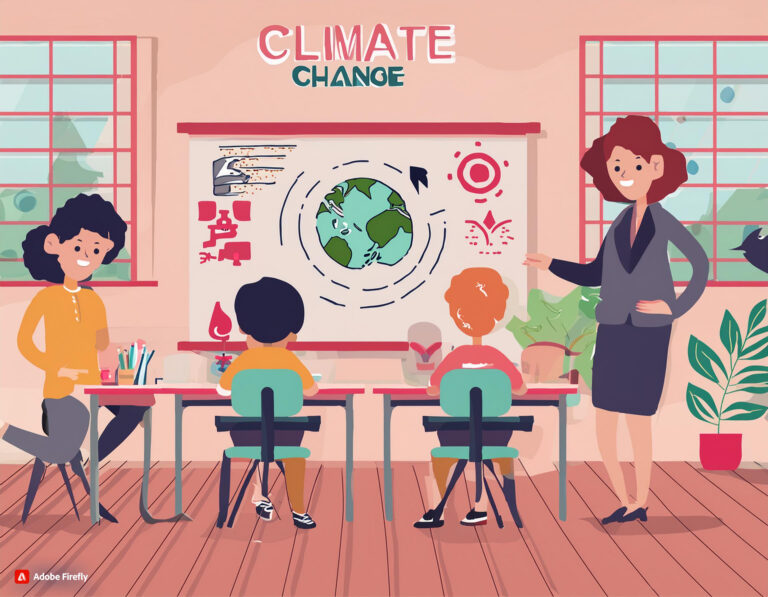Climate Change Education
Climate change education (CCE) refers to as all forms of education that help individuals understand and address the impacts of the climate crisis by empowering individuals with knowledge, skills, values, and attitudes necessary to act as agents of change (UNESCO, n.d.). CCE aims for self-transformation in how people think and act, ultimately seeking societal transformation that shifts from individual actions to collective empowerment (Selby & Kagawa, 2013).
Within the framework of Education for Sustainable Development (ESD), CCE is required to apply these three pedagogical principles:
- Learner-centred approach: Utilising learners’ prior knowledge and experiences as starting points for the learning process.
- Action-orientated learning: Focusing on actionable solutions to address climate change.
- Transformative learning: Provoking self-reflection on learners’ worldviews.

Pro-Environmental Behaviour
In an anthropogenic world, the actions we take significantly impact the environment, making it crucial to foster pro-environmental behaviour. This journey of understanding pro-environmental behaviour touches upon three interconnected dimensions: cognitive, affective, and behavioural.
Cognitive Dimension: This dimension involves the awareness and knowledge individuals possess regarding environmental issues. Understanding the causes and consequences of climate change and other environmental challenges is the foundation for pro-environmental behaviour. Education plays a pivotal role in shaping cognitive awareness, as it provides the information needed to comprehend the environmental crisis and the importance of sustainable practices. As individuals become more informed about the interconnectedness of their actions and the environment, they begin to recognise their potential to make a positive impact.
Affective Dimension: Emotions and values significantly influence pro-environmental behaviour. The affective dimension encompasses the feelings that individuals experience in relation to environmental issues, such as concern, hope, empathy, and responsibility. When people emotionally connect with the environment, they are more likely to feel motivated to take action. This emotional engagement can be cultivated through experiences that foster a sense of connection to nature, such as outdoor activities or community initiatives. As individuals develop a deeper emotional investment in the environment, their desire to engage in pro-environmental behaviours strengthens.
Behavioural Dimension: The final dimension focuses on the actual actions taken by individuals to support environmental sustainability. This includes choices related to consumption, waste management, energy use, and advocacy for policy changes. Understanding the factors that influence behaviour is essential for promoting pro-environmental actions. Interventions, such as providing resources, incentives, and support systems, can encourage individuals to adopt more sustainable practices in their daily lives. By transforming awareness and emotional connection into tangible actions, individuals can contribute to collective efforts in addressing environmental challenges.